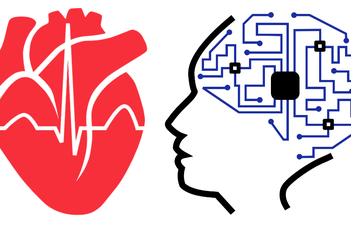Jelek és rendszerek kutatócsoport

The Department of Numerical Analysis at the Faculty of Informatics of the Eötvös Loránd University has a decades-long professional history in the fields of approximation theory, mathematical modeling, and numerical analysis. The Harmonic Analysis School, established at the department over 30 years ago, has provided scientific motivation for numerous university and academic doctoral dissertations, contributing to the continuous expansion of the department's research portfolio. Following this tradition, the Signals and Systems Research Group was established, and in recent years, several young colleagues have joined. Within the research group, alongside classical mathematical and computer science studies, we focus on the development of model-driven machine learning algorithms in response to the growing influence of artificial intelligence (AI) and emerging trends in computer science. Both MSc and doctoral students actively participate in these research projects.
1. Research group:
- Dr. Sándor Fridli, professor, fridli@inf.elte.hu
- Dr. Péter Kovács, habilitated associate professor, kovika@inf.elte.hu
- Dr. Gergő Bognár, assistant professor, bognargergo@staff.elte.hu
- PhD students: Tamás Dózsa, Mátyás Szabari, Gergő Galiger, Hoque Sajedul
2. Projects:
We conduct application-oriented basic research in our projects, where the problem formulations of theoretical research are directly inspired by practical applications. This often leads to interdisciplinary and complex research, requiring not only computer science and mathematical knowledge but also application-specific expertise and collaboration with professionals from various fields. Our research group currently focuses on the following areas:
-
Biomedical signal processing:
- ECG segmentation, heartbeat classification, data compression.
- EEG signal processing, epileptic seizure detection, sleep stage classication.
- Multimodal biosignal analysis: ECG and PPG based blood pressure estimation, statistical analysis of physiological datasets.
-
Digital signal processing:
- Autonomous vehicle control: tire sensor data processing, road surface classification, estimation of tire-road forces, skidding detection.
- Signal processing for telecommunications: OFDM communication, transceiver and receiver data simulation, channel estimation, modell-based decoding, physical layer encryption.
- System identification: investigating dynamical systems, transfer function identification, rational function approximation, embedded hardware implementations using microcontrollers, FPGAs.
-
Tomographic imaging:
- Thermal image reconstruction for nondestructive testing.
- CT image reconstruction, segmentation, artifact reduction.
-
Model-driven machine learning:
- Fusing mathematical models with data-driven artificial intelligence: Variable Projection Networks (VPNet), ODE Network, WaveletKernelNet, OptNet, Wiener-Hammerstein networks.
- Deep unfolding: unrolling iterative numerical methods into neural network layers.
3. Cooperations:
-
International
- Institute of Signal Processing, Johannes Kepler University (Linz, Ausztria)
- Silicon Austria Labs (Linz, Ausztria)
- Department of Medical Informatics, University Medical Center, Georg-August University (Göttingen, Németország)
- Center for Artificial Intelligence and Cybersecurity, Faculty of Engineering, University of Rijeka
-
National
- HUN-REN SZTAKI, Systems and Control Lab
- HUN-REN Institute of Technical Physics and Materials Science, Nanosensors Laboratory
- HUN-REN Wigner Research Centre for Physics, Data and Compute Intensive Sciences Research Group
- ELTE IK, Savaria Institute of Technology
4. Industrial collaborators:
- RECENDT Research Center for Non-Destructive Testing GMBH (Ausztria)
- Siemens Digital Industries Software, Test Division (Belgium)
- BKK Modeling and Data Analysis Department (Hungary)
4. Research grants:
- Project “Knowledge-Augmented Deep Learning by means of Variable Projections” (no. K_146721) has been implemented with the support provided by the Ministry of Culture and Innovation of Hungary from the National Research, Development and Innovation Fund, financed under the K_23 „OTKA” funding scheme.
- Thematic Excellence Programme 2021, National Defence, National Security Subprogramme, Cyberphysical pillar. Project “Protection of safety-critical national services and industrial infrastructures using cybersecurity, technological, and regulatory measures” (no. TKP2021-NVA-29) has been implemented with the support provided by the Ministry of Culture and Innovation of Hungary from the National Research, Development and Innovation Fund, financed under the TKP2021-NVA funding scheme.

